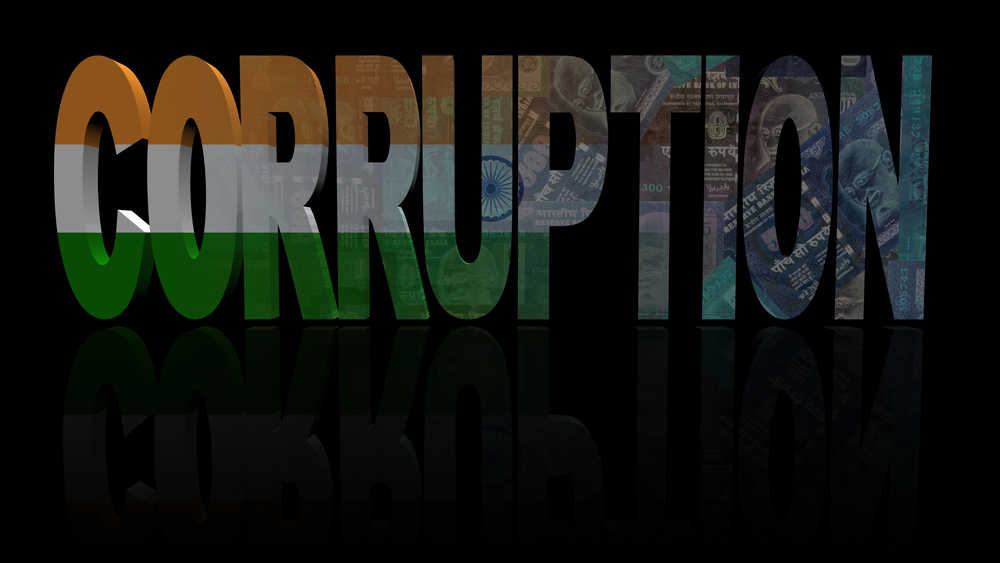India’s ranking among 180 countries on the Corruption Perceptions Index 2020, compiled by the Transparency International, has slipped from 80 to 86. India’s score is worse than the global average and also the Asia-Pacific average. We are behind China, which has a rank of 78, but much above our bête noire, Pakistan, graded at 124.
This news comes on the heels of another report — The Global Corruption Barometer — compiled by the Transparency International in November 2020. According to the GCB, India has the dubious distinction of the highest bribery rate (39 per cent) in Asia and the greatest number of people who use personal connections to access public services (46 per cent). Most of the respondents (89 per cent) felt that corruption in the government was the main problem. A large number (63 per cent) think that reporting corruption would invite retaliation. According to the report, “unnecessary red tape and unclear regulatory frameworks force citizens to seek out alternate solutions”; this assessment touches upon only a fragment of the government’s inimical role in exacerbating corruption. The report has also ignored the venality of the middle-class and the business elite — self-righteous, selfish, and conscienceless — that are the prime propagators of this nexus between bribe-taker and bribe-giver. These reports on corruption in India have not turned a hair because in the last few years, corruption as an issue of public concern has dropped off the nation’s radar.
A decade ago, the India Against Corruption movement organized a nationwide stir against endemic political and bureaucratic corruption that brought a jittery, dishonest government to its knees and governance to a standstill. After two years of the Anna Hazare fraternity holding a gun to the government’s head, the Lokpal and Lokayuktas Act, 2013 was passed by parliament, paving the way for the establishment of a Lokpal. What on earth happened to the spirit of the Anna Hazare movement? Arguably, the cardinal reason for the dissipation of the anti-corruption movement is the towering persona of the prime minister, Narendra Modi. So imposing and clean is his public image that his devotees — bhakts, big business, the media — have amplified his personal integrity to the extent that it has subsumed criticism of corruption in his government.
Ironically, the government that rode to power in 2014 on an anti-corruption wave and on its poll promise of a corruption-free India must take responsibility for undermining the Lokpal. Such is the stranglehold of the prime minister on the body politic that the government put off the setting up of the Lokpal by more than five years until March, 2019. In the interim, the statute was subverted with critical amendments that considerably diluted the powers and the reach of the Lokpal. An amendment passed in 2016 did away with the requirement for public servants to disclose the incomes of spouses and dependent children despite evidence that corrupt officials pass on their illegitimate booty to family members. Furthermore, the Prevention of Corruption Act was amended whereby the Lokpal was required to seek the government’s permission for prosecuting even a retired public servant against the earlier proviso that covered only serving officials.
The manner in which the composition of the Lokpal Selection Committee was decided and the procedure adopted for selection of the chairperson and members of the Lokpal are stunning examples of the imperious ways of an illiberal State taking decisions unencumbered by democratic niceties. The Supreme Court passed a judgment on April 27, 2017 stating the appointment of a chairperson or a member of the Lokpal would not become invalid merely because of any vacancy in the Selection Committee, which was the opening that the government needed to make the appointments with a truncated committee and without the leader of the Opposition, whose role is to provide objectivity in the assessment of candidates. Expectedly, there are allegations that candidates well-disposed towards the government now occupy the top posts in the supreme body ordained to fight corruption in government, from the prime minister down to the Group ‘D’ recruit. The Lokpal is a pale shadow of the ombudsman envisaged by the Lokpal law enacted in 2013.
The Lokpal Act envisaged the transfer of the powers of the Central Bureau of Investigation to the investigation and prosecution wings of the Lokpal. The rationale for this change was that freed from the shackles of government control, the investigating agency would be non-partisan and, thereby, effective in rooting out corruption. It is evident that the Modi government will not cede control of the CBI’s powers to the Lokpal. It is also clear that the Lokpal will accept this violation of the Act without demur.
The ruling establishment has created an intimidatory environment that is potent. The bureaucracy cowers behind the steel frame in an ecosystem where loyalty to the ruling dispensation, not impartiality and probity, is of paramount importance. The prime minister has promised more governance and less government, but the decision-making is more opaque than ever. The pall of fear and distrust has made civil servants risk-averse and unwilling to take quick, bold decisions. But there are no holds barred when it comes to the ‘special interests’ of the government. Sadly, most institutions have become subordinate adjuncts of the executive.
The latest reports by Transparency International have revealed only the tip of the iceberg. Corruption permeates many aspects of our social life and affects us all. But at present, our apprehensions have gone beyond bribing and other monetary depredations to a much darker place — the corruption of the nation’s soul. The greatest concern is the contagion of majoritarianism that threatens our very survival as a democracy. In such a fraught environment, whither the fight against corruption?











